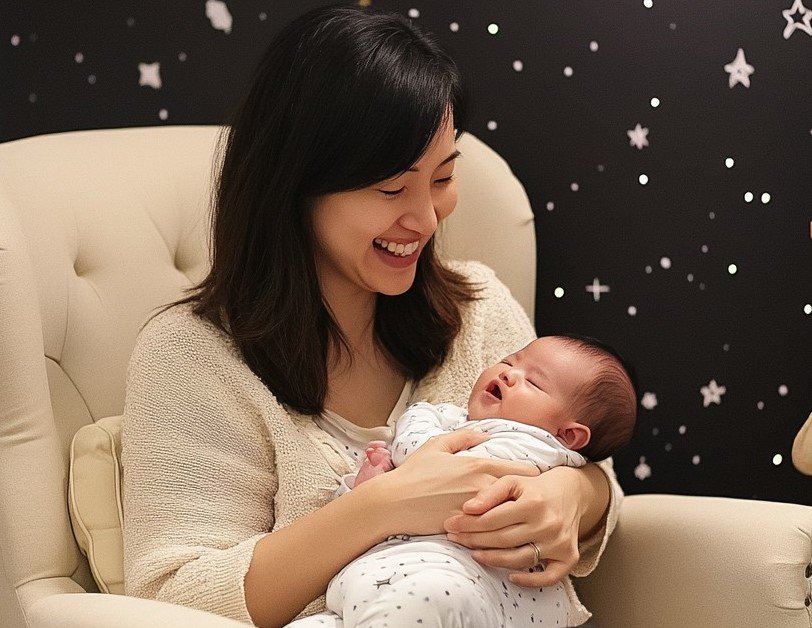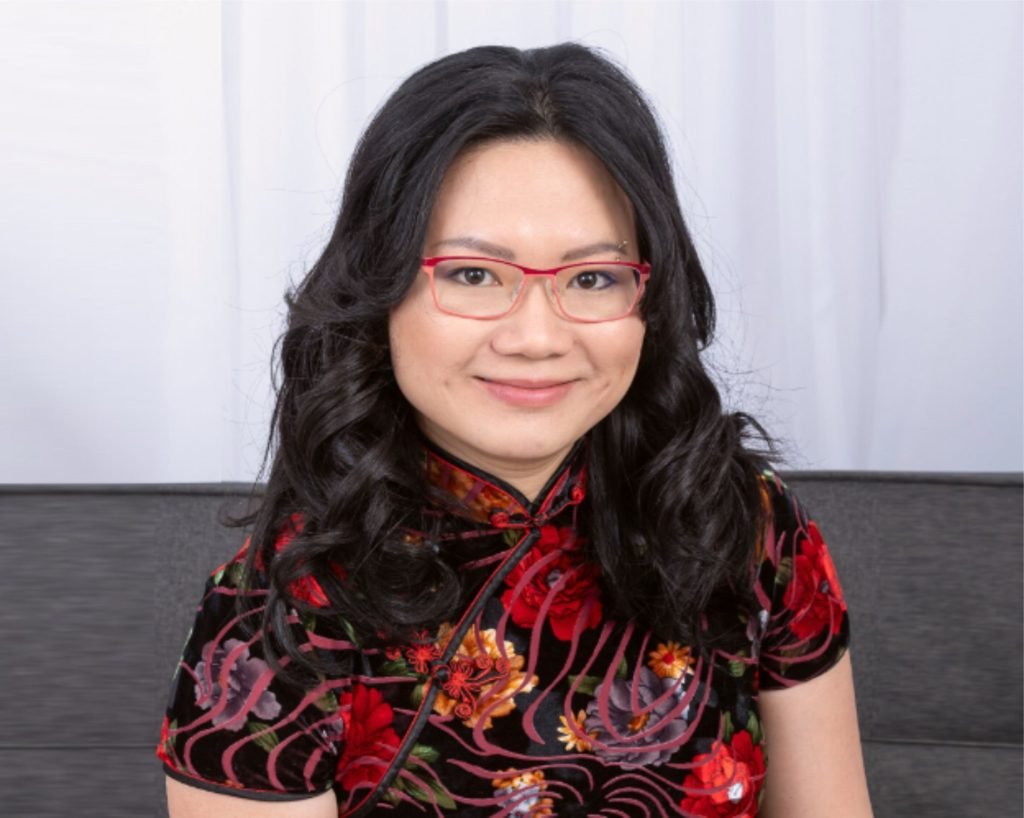Confinement, or Zuo Yue Zi in Chinese, is a conventional postpartum recovery practice that originated in ancient China. While its specifics may vary across different regions and families, the underlying principles remain consistent: to promote healing, restore energy, and strengthen the mother-child bond.
All About The Conventional Chinese Practice of Postpartum Confinement
Postpartum recovery is often deeply rooted in cultural traditions. One practice, known as “Confinement” or Zuo Yue Zi in Mandarin, stands out in Chinese culture. The practice, which literally translates to “sitting the month,” sees a mother stay at home to rest and recover after childbirth. Its principles are centered on healing the body, nourishing it through specific diets, and preventing exposure to cold or fatigue.
The postpartum period is one of the most delicate times in a mother’s life, requiring specialized care and attention. It may seem foreign to those unfamiliar with it, especially in the West, where Confinement is often associated with imprisonment. But in many Asian cultures, Confinement refers to a sacred time of recovery, a process supported by family, tradition, and time-honored wisdom.
The Foundations of Confinement: Rest and Healing
The essence of Confinement is rest—complete physical and emotional rest. A new mother is encouraged to follow certain rules that are intended to optimize her recovery, replenish her energy, and help her body return to its pre-pregnancy state.

In conventional Chinese medicine (TCM), the period following childbirth is considered one of great vulnerability. The body has undergone immense strain, and it’s believed that the period is one where a “cold” might easily enter the body, leading to illness.
Confinement practices are steeped in TCM principles, which focus on prevention and restoration. The aim is to avoid cold, dampness, and wind—three elements believed to hinder recovery. It is also a time for rebuilding the body’s strength, particularly the Qi (life energy) and blood, which are considered depleted after childbirth.
Nutrition: The Heart of Confinement
One of the cornerstones of Confinement is nutrition. A mother’s diet during the period is carefully curated to promote warmth and recovery. The meals often consist of stews, soups, steamed vegetables, and high-protein foods, all of which are designed to restore strength. Fried foods, often considered too “heaty” in TCM, are typically avoided.
The focus is on meals that are easy to digest and full of nutrients, aiding both the mother’s recovery and supporting breastfeeding, which requires an enormous amount of energy.
However, the modern understanding of postpartum care introduces a key element that conventional practices may overlook: the importance of fiber. Vegetables and fruits help prevent constipation, a common issue many mothers face during recovery. Though the foods may be considered “cold” in TCM terms, contemporary advice encourages moderation.
Speak with a TCM doctor or a knowledgeable nutritionist to find balance, and get the right diet to support your recovery and overall well-being.
Rest and Work Restrictions: Giving the Body Time to Heal
One of the most fundamental rules during Confinement is limiting physical activity. Rest is the priority, with strict guidelines against performing housework, cooking, or even minor tasks like laundry.
It isn’t a mere luxury. The physical toll of childbirth requires substantial time to heal. Muscles, tissues, and organs all need to recover from the strain, and pushing the body too soon may lead to prolonged recovery or even complications.
Hygiene Restrictions: Avoiding Cold and Dampness
A unique and often debated aspect of Confinement is the strict hygiene practices, such as avoiding showering or washing one’s hair for a period of up to 30 days. The tradition stems from the belief that water, particularly cold water, may allow cold and dampness to enter the body, which is still in a delicate, open state after childbirth.
While it may seem extreme, they are rooted in TCM principles. However, many mothers are opting for more lenient versions of the rules, choosing to follow modified hygiene practices that prioritize comfort while still maintaining the spirit of the tradition.
Social Restrictions: Protecting Emotional Health
Another key component of Confinement is limiting social interactions. In TCM, excessive emotions and disruptions are thought to create an imbalance in the body, which may hinder recovery. Thus, many families choose to limit visitors and social engagements during the period, allowing the new mother a quiet, peaceful environment to heal.

Nowadays, however, the emotional aspect of postpartum recovery cannot be ignored. Many new mothers experience hormonal shifts, leading to mood swings, postpartum blues, or even postpartum depression. Healthy emotional outlets, such as talking with a trusted friend or therapist, promote overall wellness during that vulnerable time.
A Modern Approach to Confinement
As with many traditions, the practice of Confinement has grown with time. In the 21st century, new mothers are more likely to seek a balance between conventional and modern medical advice. While some may adhere strictly to the age-old practices, others incorporate only the elements that resonate with them, combining TCM with modern healthcare to create a more holistic postpartum recovery plan.
Confinement may look different in every household, depending on cultural background, personal preferences, and the advice of healthcare providers. But at its core, the practice remains a deeply personal and sacred time for healing, bonding, and restoring the body.
Are You Ready to Reach Your Full Potential as a Mom?

Dr. Kristal Lau offers guidance to direct you through motherhood, helping you and your baby thrive. As a distinguished postpartum wellness coach and modern healthcare professional, Dr. Lau combines her clinical expertise in modern healthcare and conventional Chinese medicine to craft personalized health plans that meet the unique needs of modern mothers.
If you’re ready to take charge of your postpartum recovery, Dr. Kristal Lau is here to help. Book your free call and start thriving in motherhood. Plus, don’t forget to check out The Postpartum Wellness Show podcast, available on Spotify, Apple Podcasts, and YouTube, for more valuable insights and guidance directly from Dr. Lau herself!
FAQ Section
Should fathers or family members help during the Confinement period?
Absolutely. While the mother is encouraged to rest, family members, including fathers, play a role in supporting her. They may help with household chores, meal preparation, and caring for the newborn, allowing the mother to focus on healing and bonding with the baby.
How does postpartum Confinement differ from Western postpartum care?
Postpartum Confinement focuses heavily on rest, warmth, and avoiding certain external elements (like cold and wind), whereas Western postpartum care tends to emphasize physical check-ups and emotional support. Both approaches share the common goal of promoting the mother’s recovery, but they do so with different methods and cultural values.
Are there any risks associated with strict Confinement practices?
Strict adherence to Confinement practices without flexibility may sometimes lead to discomfort or emotional challenges, particularly if the mother feels isolated.
Is postpartum Confinement beneficial for mothers who have had a cesarean section?
Yes, Confinement practices are adaptable even to mothers who had a cesarean section. The emphasis on rest, nutrition, and gentle recovery aligns well with the needs of cesarean recovery, though certain activities or practices may need to be further tailored to the mother’s specific condition.
